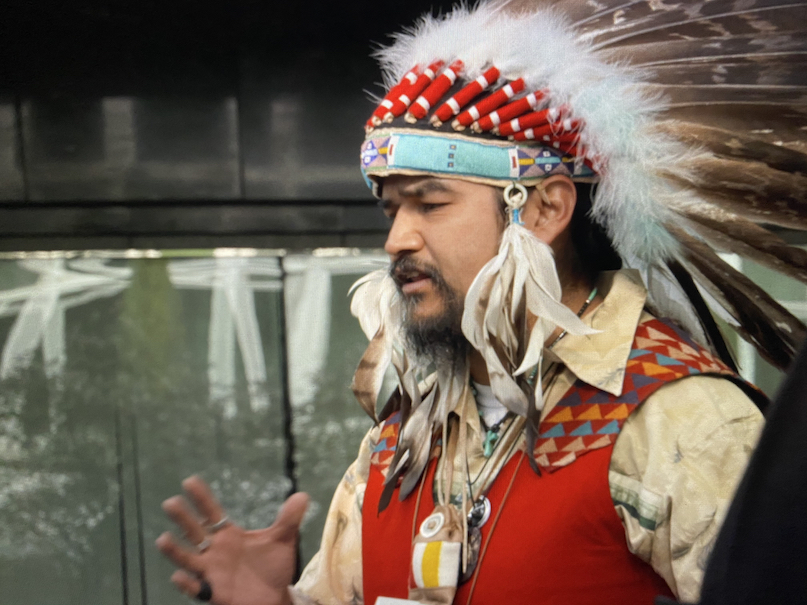forum
library
tutorial
contact

Inland Northwest Tribal Leaders
Support Dam Removal
by Rob Chaney
Missoulian, April 19, 2021
|
the film forum library tutorial contact |

|
Inland Northwest Tribal Leaders
by Rob Chaney
|
"Hydropower impacts salmon spawning beds, causes low water levels, and warmer water temperatures,
all of which devastate anadromous fish species."
 Confederated Salish and Kootenai Tribal Chairwoman Shelly Fyant has added her support with 11 other tribal leaders to push for removal of four dams on the Snake River in Idaho.
Confederated Salish and Kootenai Tribal Chairwoman Shelly Fyant has added her support with 11 other tribal leaders to push for removal of four dams on the Snake River in Idaho.
The proposal by Idaho Congressional Rep. Mike Simpson could restore wild salmon migration routes into the Inland Northwest. Representatives from CSKT, Umatilla Indian Reservation, Colville Reservation, Confederated Tribes of Warm Springs, Kootenai Tribe of Idaho, Yakama Nation, Nez Perce Tribe and Spokane Tribe took part in the two-day discussion.
"CSKT is an owner of a portion of the Columbia Basin Hydropower system providing flood control and power to the region and sees clearly that the comprehensive proposal put forth by Rep. Simpson is the most viable path for restoration of Columbia Basin Resources," Fyant said in a news release.
"We say this from not only a provider of energy but also as a Bonneville Power preference customer bringing energy from the Columbia Basin Hydropower system to our people. We encourage the rest of the Northwest delegation to join with Rep. Simpson to complete this comprehensive plan and commit the resources to implement it."
Pacific salmon did not migrate much farther than the present-day Idaho border due to waterfalls on the lower Clark Fork River. But the Snake and Columbia river systems supported massive salmon populations that penetrated as far as the western Bitterroot Mountains. Construction of hydroelectric dams on those rivers blocked the salmon runs.
Last August, the U.S. Army Corps of Engineers, U.S. Bureau of Reclamation and Bonneville Power Administration released a final environmental assessment rejecting the idea of removing the Snake River dams. Simpson, a Republican, announced his plan five months later.
Simpson's proposal would breach four dams on the Lower Snake River and invest more than $5 billion in salmon restoration work there. It would also provide almost $20 billion for new transportation infrastructure, improvements to the energy grid and storage facilities, and replacement energy supplies.
Colville Business Council Chairman Rodney Cawston said the proposal also worked for agriculture and power production needs.
"Food and agriculture are needed to feed the world," Cawston said. "Hydropower is a cheap and reliable form of renewable energy. Yet, hydropower impacts salmon spawning beds, causes low water levels, and warmer water temperatures, all of which devastate anadromous fish species. It is imperative that we all work together to look for different ways for all operations on the Columbia River and its tributaries that addresses everyone's needs."
CSKT spokesman Robert McDonald said the tribal leaders' comments would be reviewed by their individual tribal councils before full decisions on supporting Simpson's legislation might be reached.
learn more on topics covered in the film
see the video
read the script
learn the songs
discussion forum
